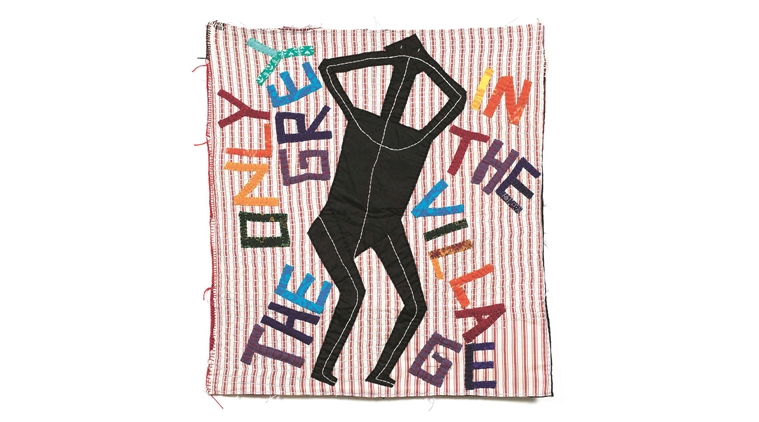Sewing Fragments: Artist Renuka Rajiv’s work melds folk forms and zine styles
Renuka Rajiv’s work — stitching and sewing, monotypes, zines — revolves around a fictionalised self, with surfaces replete with text suggesting non-linear narratives.

One of Renuka Rajiv’s work titled ‘Transfrustrations’.
The fragments of clothes bearing embroidery that melds folk forms and zine styles carry impressions of both Renuka Rajiv’s childhood predilection for fidgeting with paper and fabric as well as the artist’s more recent need to accommodate a more personal narrative, visible in the exhibition “The Future Is Not My Gender”. “The name of the exhibition is from a series of lines I had jotted down,” says Rajiv, whose work makes ample room for text. “The title sits in a way that’s similar to how other fragments of text sit in my work. It is not directly descriptive of the works themselves, but is very much like them, or is one of them,” the artist adds.
Rajiv’s work — stitching and sewing, monotypes, zines — revolves around a fictionalised self, with surfaces replete with text suggesting non-linear narratives. This is attributed to the artist’s training in both video production and printmaking. “I had an interest in writing since school. Perhaps because I didn’t take writing forward in it’s own right, it has spilled into the visual work,” says Rajiv. The textiles, chosen as the artist’s canvas, are clothes previously owned by Rajiv or friends and family.
“There is something different about the physical quality of a material that isn’t new,” says Rajiv. The artist’s proneness to “scavenging” manifests in the abstract papier-mâché sculptures on display. These were born of a residency in Switzerland as part of the Emerging Artists Award 2016, awarded by the Foundation of Indian Contemporary Art and Pro Helvetia. “I was free to create my own structure/ rhythm to work. I was scavenging paper trash from grocery shopping and the paper mache work came out of that, also from wanting to explore pattern on three-dimensional surfaces. My process is a bit fragmented. There are a few threads now and then, and sometimes it is more focussed,” says Rajiv.
The exhibition is on at Vadehera Art Gallery till August 14






















No hay comentarios:
Publicar un comentario